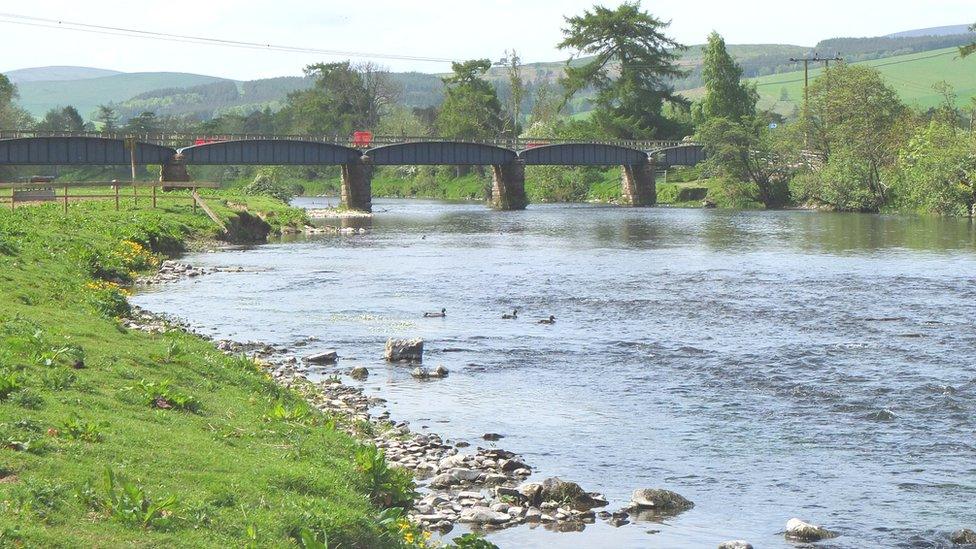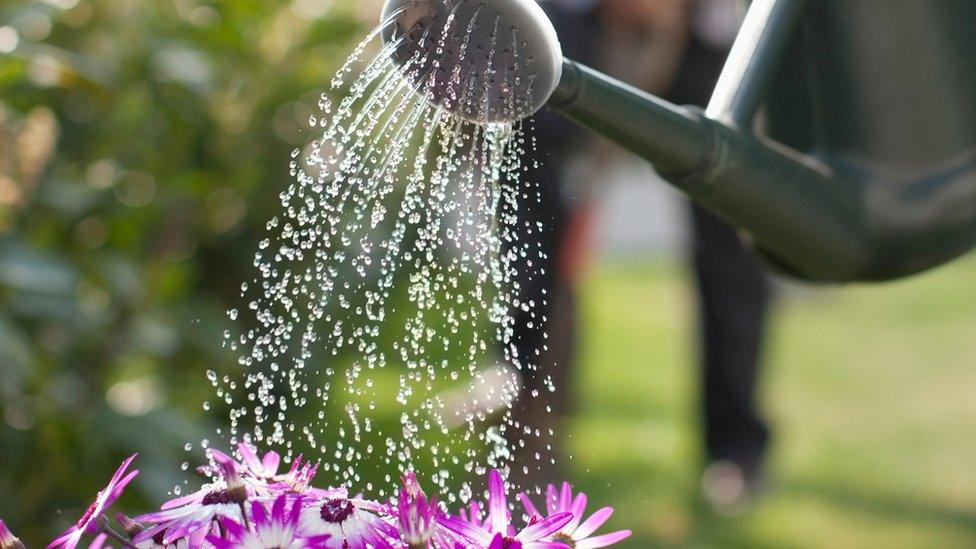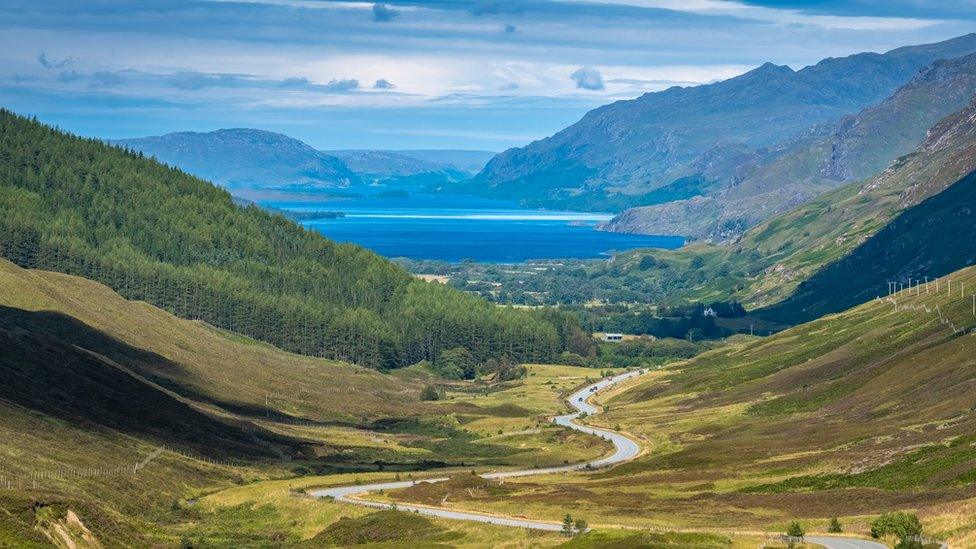Water scarcity issues expected to escalate rapidly across Scotland
- Published

Most of the country is now on early warning for water scarcity
Water scarcity across Scotland is expected to escalate quickly, the nation's environment agency has warned.
With little rain forecast in the next few weeks, most of the country has been put on early warning.
The Scottish Environment Protection Agency (Sepa) said the issue was most acute around Loch Maree in Wester Ross.
However, large parts of north-west and southern and central Scotland have also been raised to alert status after a spell of warm, dry weather.
Sepa issues water scarcity reports every week throughout the summer months.
The latest one, external shows only one small section of the north-east of Scotland in normal conditions.

Scottish Water has asked domestic users to use water "as efficiently as possible"
The situation is being monitored closely to see if any restrictions need to be put in place.
Farmers and golf courses have been asked to only use the water they need especially if taking it from small burns or rivers.
Sepa said settled weather was expected to dominate across Scotland throughout June while the outlook for the rest of the summer suggested there was "double the likelihood" of it being hotter than normal.
Its head of water and planning, Nathan Critchlow-Watton, said: "The water scarcity picture in Scotland is just one of the consequences of climate change the country faces, and its frequency and severity is only likely to increase in the future.
"This is a crucial time of year for water demand, but with no rain in the forecast we cannot rule out needing to impose restrictions over the summer."
'Precious resource'
He asked people to "manage water wisely" in the coming weeks and months.
Scottish Water has also called upon on people to use water as efficiently as possible in homes and gardens in order to help protect water supplies.
It said it was working to ensure its systems could cope with demand.
It said the public could help save water in a number ways including:
Using a watering can instead of a hose
Taking shorter showers
Turning off the tap when brushing teeth
Using washing machines and dishwashers only when fully loaded
Washing the car with a bucket and sponge rather than a hose
Kes Juskowiak, general manager of the supplier's customer water services, said: "We're working hard to maintain normal supplies for all but would ask that customers consider how they use water and to protect this precious resource."
Related topics
- Published26 May 2023
